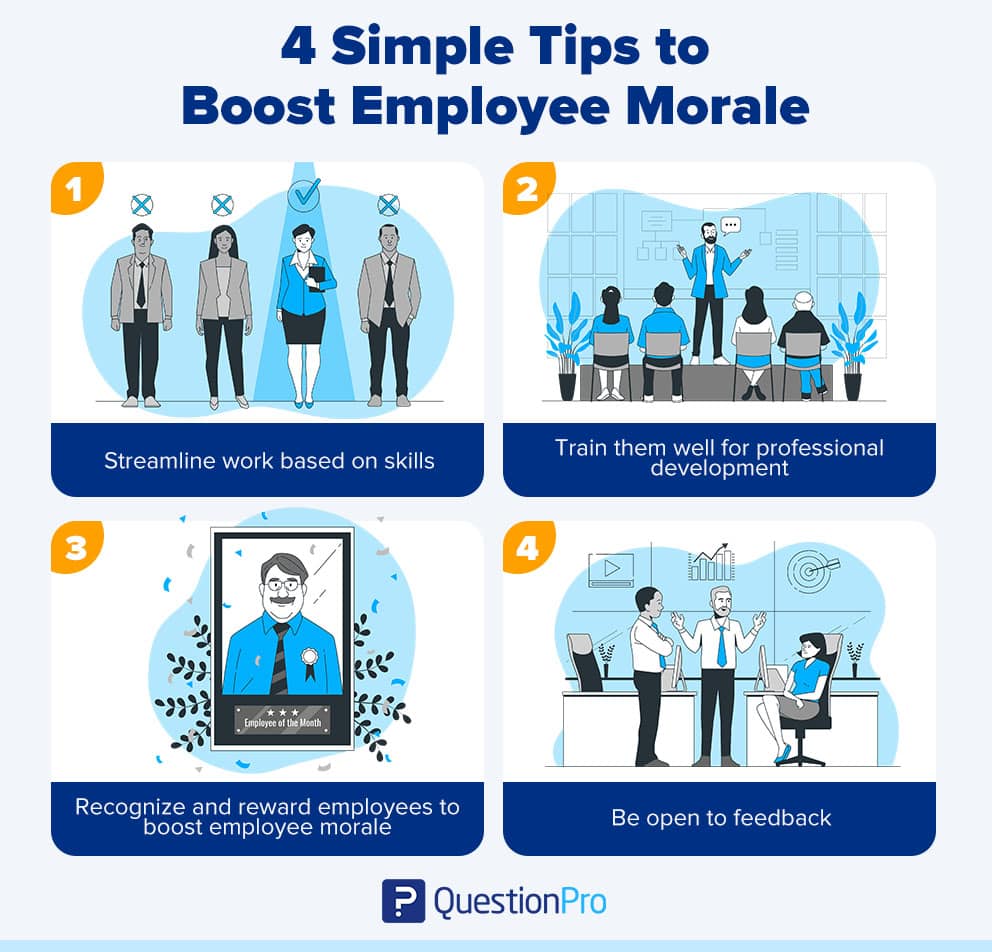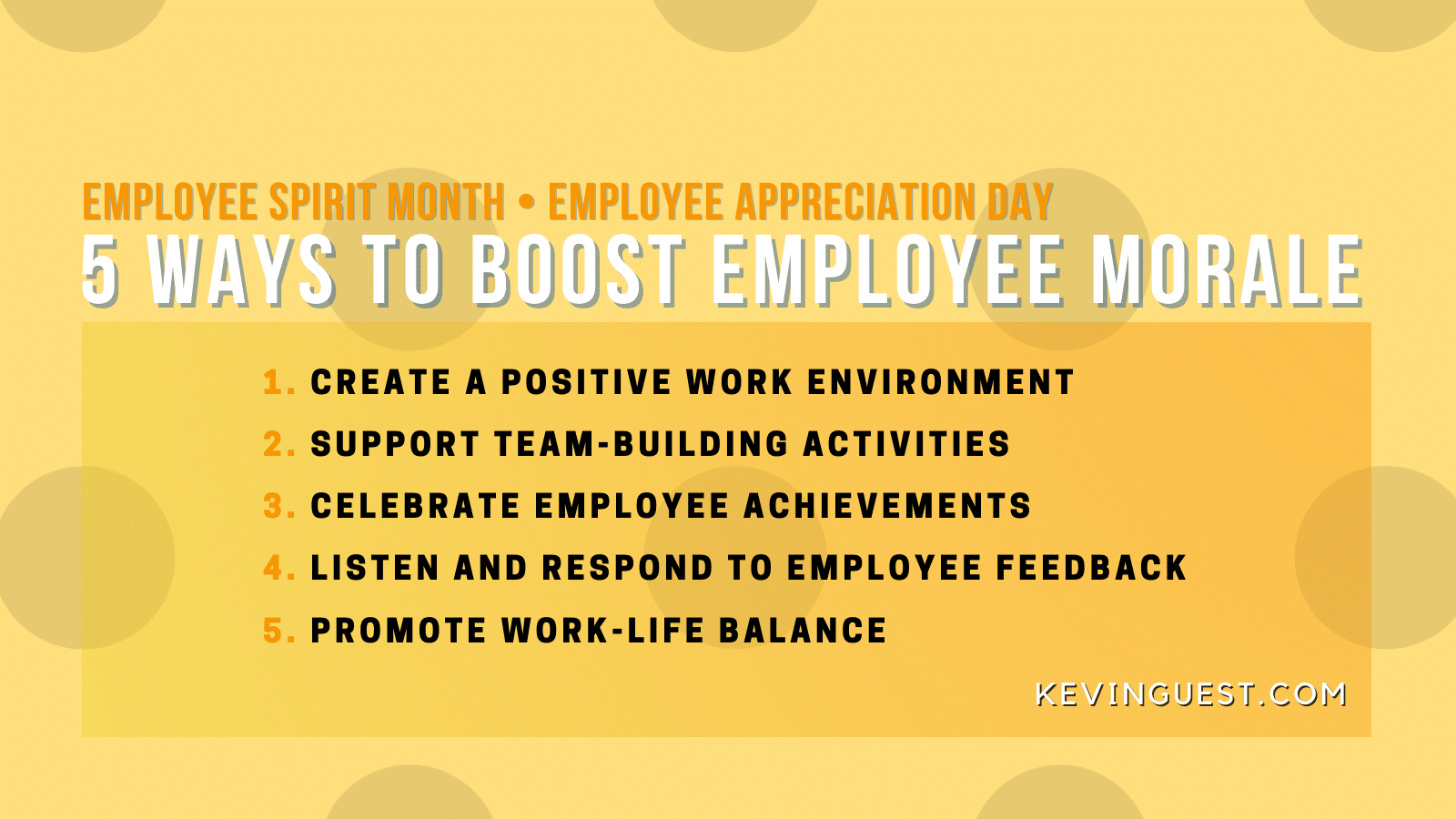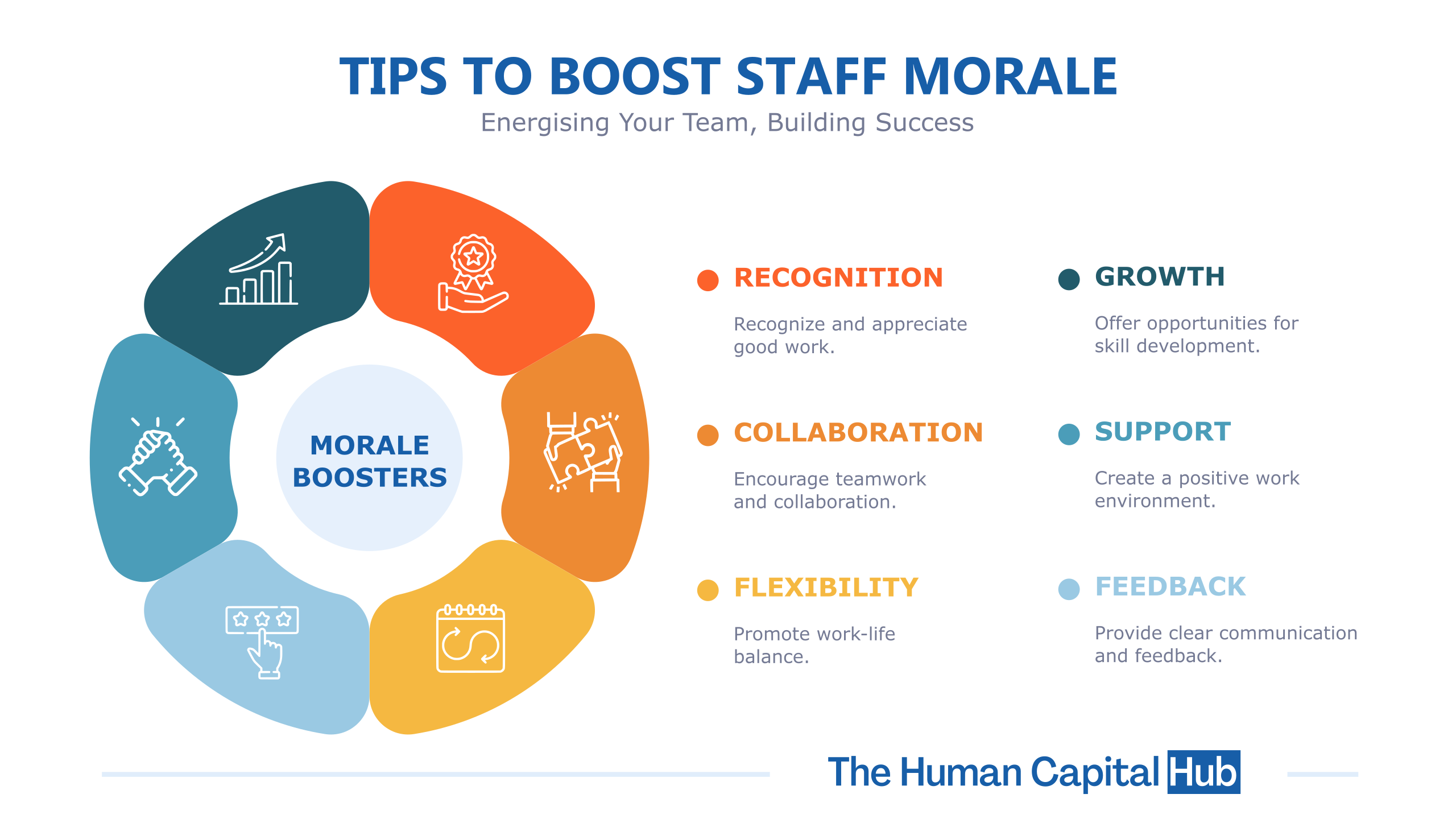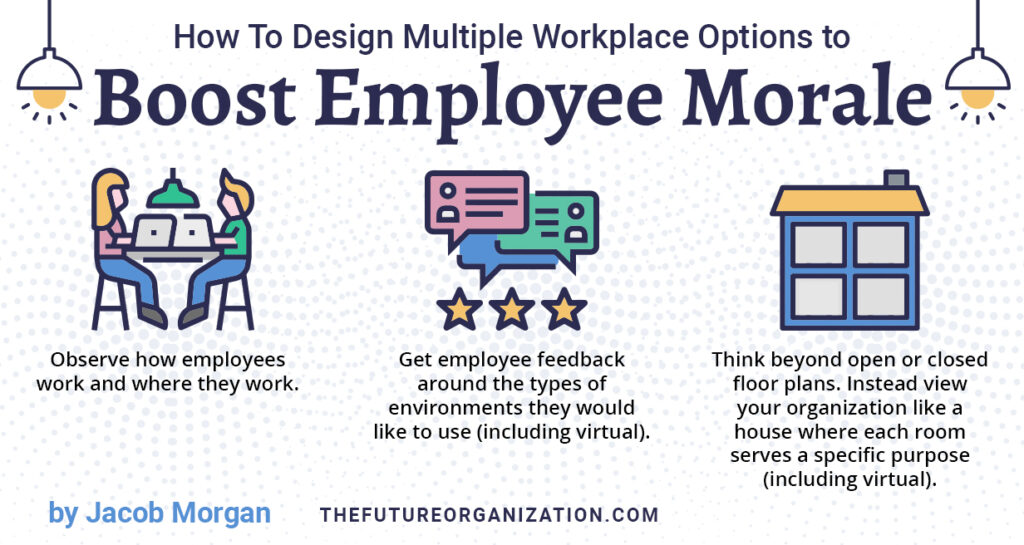How To Improve Morale In The Workplace

Workplace morale is plummeting nationwide, impacting productivity and employee retention. Immediate action is crucial to reverse this trend and cultivate a positive work environment.
This article provides actionable strategies for boosting employee morale based on expert advice and recent studies. Addressing morale issues proactively is no longer optional, it’s essential for survival.
Recognize and Reward Achievements
A simple "thank you" can go a long way. Publicly acknowledge employee contributions to demonstrate their value.
Implement a formal recognition program to highlight outstanding performance. This could include bonuses, gift cards, or even extra vacation days.
According to a 2023 study by SHRM, employees who feel recognized are five times more likely to stay with their company.
Foster Open Communication
Encourage open dialogue between employees and management. Create safe spaces for employees to voice concerns without fear of reprisal.
Regular team meetings and one-on-one check-ins are vital. Actively listen to employee feedback and address issues promptly.
Gallup's research shows that engaged employees are more productive and have lower absenteeism rates.
Provide Opportunities for Growth
Invest in employee development through training programs and workshops. Offer opportunities for skill enhancement and career advancement.
Support employees' pursuit of professional certifications and continuing education. This demonstrates a commitment to their long-term growth within the company.
A 2024 LinkedIn survey revealed that 94% of employees would stay at a company longer if it invested in their learning and development.
Promote Work-Life Balance
Encourage employees to take breaks and utilize their vacation time. Flexible work arrangements, such as remote work options, can significantly improve work-life balance.
Discourage after-hours emails and promote a culture that values personal time. Leading by example is critical; managers should also prioritize their own well-being.
Burnout is a major contributor to low morale, costing U.S. companies an estimated $300 billion annually (American Institute of Stress).
Create a Positive and Inclusive Work Environment
Address workplace conflicts promptly and fairly. Foster a culture of respect and inclusivity where all employees feel valued and heard.
Implement diversity and inclusion training programs to promote understanding and empathy. Celebrate diverse perspectives and backgrounds.
"A positive work environment is one where employees feel safe, supported, and empowered to be their best selves," says Dr. Sarah Johnson, a leading organizational psychologist.
Team-building Activities
Organize regular team-building activities to foster camaraderie. These activities can range from casual social events to more structured workshops.
Encourage cross-departmental collaboration to break down silos. A strong sense of team cohesion can boost morale and improve overall performance.
WHO: Applicable to all organizations. WHAT: Implementing morale-boosting strategies. WHERE: In all workplaces. WHEN: Immediately. WHY: To improve productivity and retention. HOW: Through the strategies outlined above.
Immediate Next Steps
Assess current employee morale through surveys and feedback sessions. Implement a pilot program with some of these strategies.
Track progress and make adjustments as needed. Ongoing monitoring and evaluation are critical to ensure the effectiveness of these initiatives.
Ignoring low morale is a risk no company can afford. The time to act is now.


















